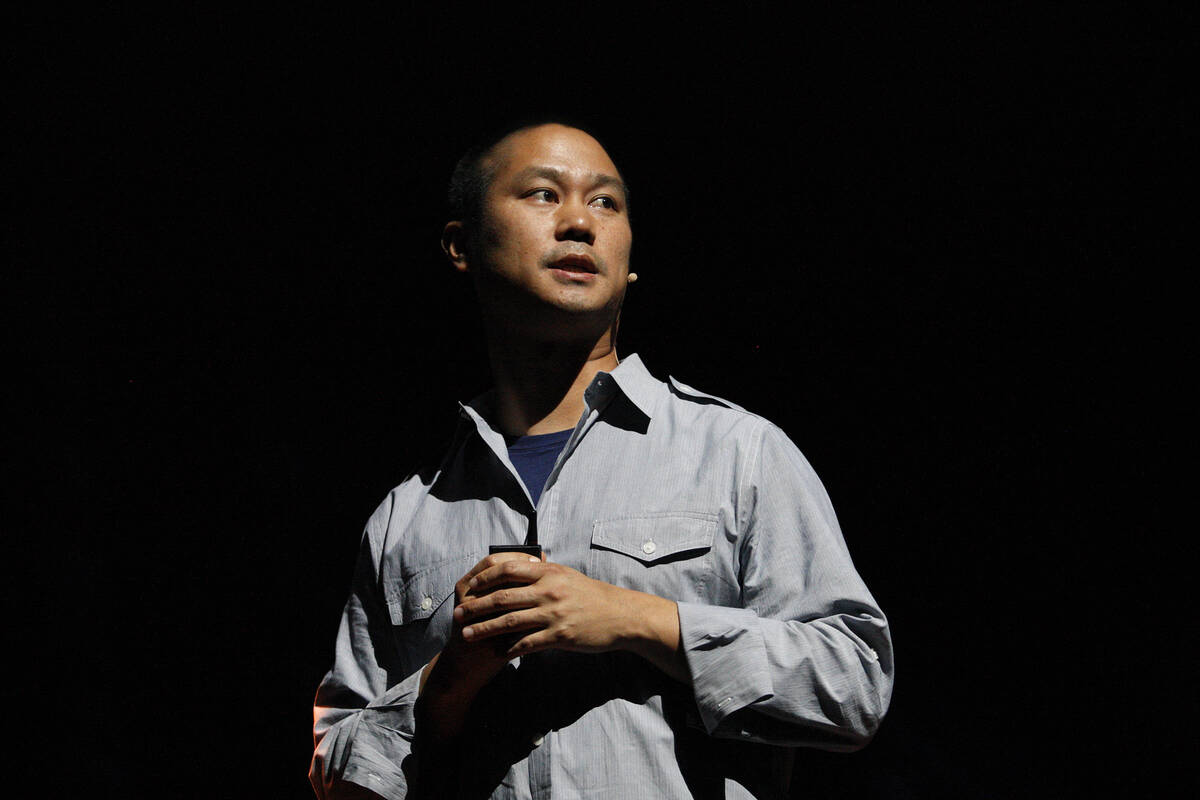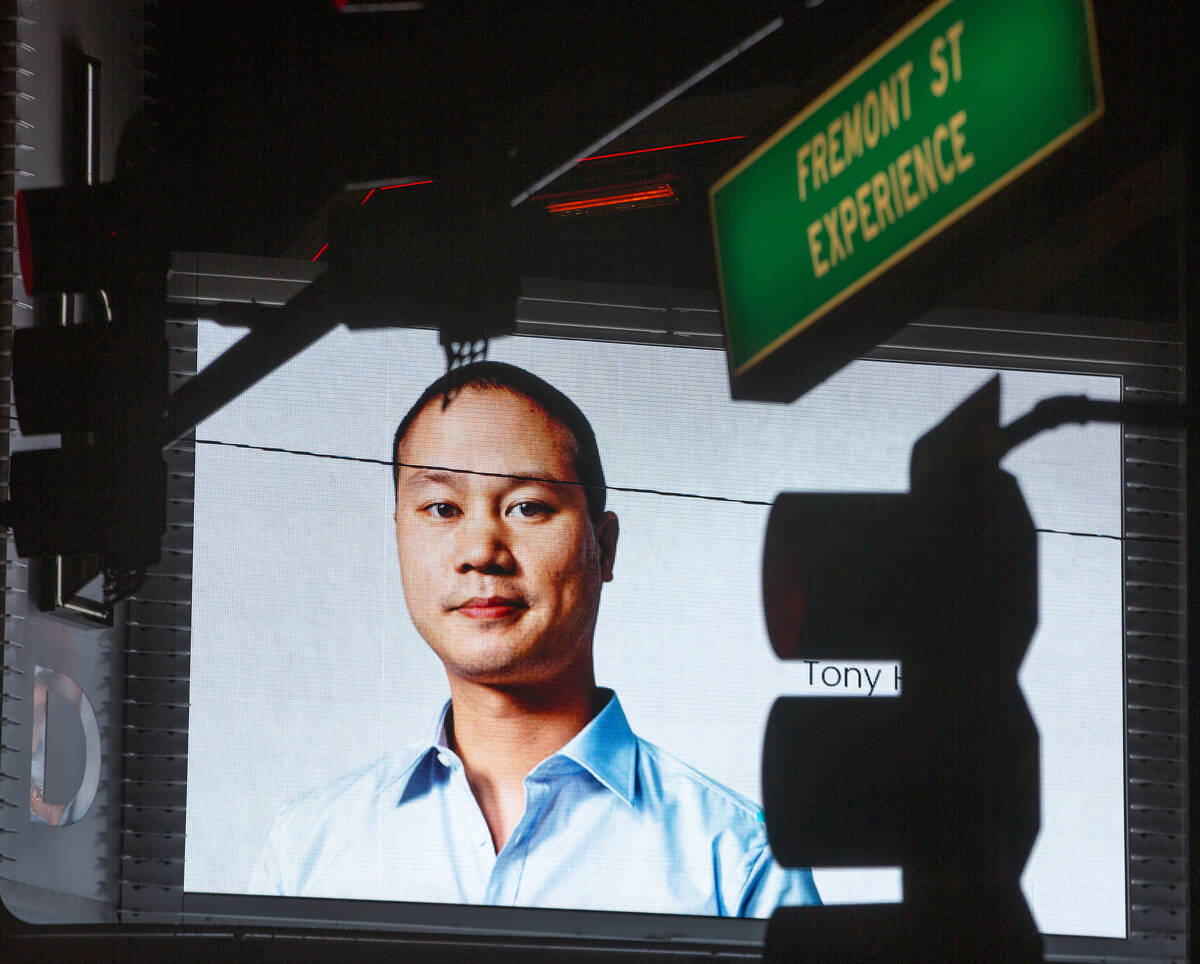Judge puts off decision on Tony Hsieh’s will as more questions swirl
A judge in Las Vegas declined to decide Thursday whether to admit the late tech mogul Tony Hsieh’s will to probate, amid a series of mounting questions around the recently discovered document.
Judge Carolyn Ellsworth continued a hearing on a request to admit the will to Hsieh’s probate case, pushing it back for what will likely be at least a few months until after some other matters in the case have been heard.
“There are quite a few questions in my mind, remaining, that should be … investigated by the estate as part of its due diligence,” Ellsworth said in the hearing in Clark County District Court, adding that Hsieh’s probate case had been going on for years and then “suddenly a purported will pops up with some interesting and kind of unusual provisions, to say the least.”
The will was found under still-unclear circumstances more than four years after the former Zappos chief’s death. Efforts to confirm the identities of several key names tied to the document — including witnesses who signed it, the person who found it and the man who had possession of it — have by all accounts come up empty.
Moreover, probate and estate-planning lawyers have told the Las Vegas Review-Journal that the will is confusing, clunky and features language and details they don’t normally see in such documents.
‘We’re not sure who these people are’
Attorneys for named executors in the will argued in court Thursday that the document appears to meet statutory requirements and is presumed to be valid.
Lawyers for Hsieh’s estate argued that they were still investigating the will and that just because there are names on a document doesn’t mean it’s valid.
“We’re not sure who these people are,” said Dara Goldsmith, an attorney for the estate.
Hsieh, the former CEO of online shoe seller Zappos and face of downtown Las Vegas’ economic revival, died in 2020 at age 46 from injuries suffered in a Connecticut house fire.
Hsieh’s father, Richard Hsieh, is the court-appointed administrator of his son’s estate, and the dad’s legal team stated multiple times in court filings that the younger Hsieh died without a will.
However, in what has proved to be a surprising and bizarre turn of events, law firms McDonald Carano and Greenberg Traurig filed court papers in April with a copy of Tony Hsieh’s seven-page last will and testament — dated March 13, 2015 — and a letter describing how it was found.
It was discovered in February in the personal belongings of the late Pir Muhammad, according to the letter, which stated Muhammad suffered from Alzheimer’s disease and was not aware Hsieh had died.
The letter did not say when Muhammad died or where he lived, nor did it provide any details about his career or his association with Hsieh.
‘We have no idea’
Hsieh had named Muhammad an executor in the will and gave him “exclusive possession” of the original, in part to prevent anyone from destroying it, the will indicates.
But several people who knew Hsieh have said they never heard of Pir Muhammad, and the Review-Journal found nothing that linked the name to Southern Nevada or confirmed who he was.
A person named Kashif Singh wrote the letter explaining the discovery. No contact information or details on Singh were provided in the initial filing, though according to McDonald Carano and Greenberg Traurig, he was Muhammad’s grandson.
Those firms filed court papers in June seeking to admit Hsieh’s will to probate and included a heavily redacted copy of Muhammad’s death certificate, without explaining how they learned of it.
The death certificate, from Pakistan, shows that Muhammad was a Pakistani national who was born in 1931 and died in October 2022 — more than two years before Hsieh’s will was discovered among his personal possessions.
Muhammad’s address, place of death, and other personal information were redacted.
Attorneys for Hsieh’s estate recently wrote in court papers that the death certificate states only that a person named Pir Muhammad died but does not show that it was the same Pir Muhammad who was named in the will.
The Review-Journal previously found more than 1,000 profiles on Facebook with the name Pir Muhammad. Many of them said they lived in Pakistan.
On Thursday, Goldsmith said in court that they still don’t know where exactly the will was found.
“We don’t know where in the world this document was located,” she said. “We have no idea.”
Contact Eli Segall at esegall@reviewjournal.com or 702-383-0342.





















